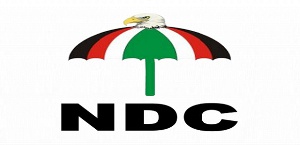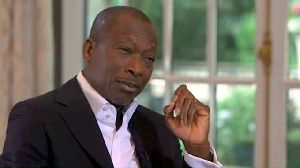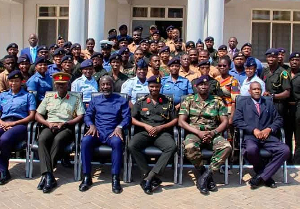As a human rights ideologue with an inborn predilection for the promotion and protection of the inherent dignity and the inalienable human rights of all members of the human family, I, for one, buried my head in shame when some mindless individuals murdered a Peace FM’s Brong/Ahafo Regional Correspondent in 2015.
Apparently, my stance did not change when more recently some homicidal brats regrettably cut short the life of the Tiger Eye PI’s investigative journalist, Ahmed Hussein-Suale.
In fact, the right to freedom of opinion and expression is encapsulated in international law -Article 19 of the Universal Declaration of Human Rights and Article 19 of International Covenant on Civil and Political Rights.
More importantly, the freedom of opinion and expression has been transposed into Ghana’s 1992 Constitution.
The overarching question however is: does free speech give individuals the right to spew whatever they want, whenever they like, without permitted abridgement? No.
In fact, free speech is an inalienable right to seek, receive and convey information and ideas of all kinds, by any means which may be deemed appropriate.
In other words, free speech denotes the ideas of all kinds, including those that may be deemed offensive.
That said, the exercise of freedom of opinion and expression carries with it special duties and responsibilities.
Thus freedom of opinion and expression may be subject to restrictions, but these shall only be such as are provided by law and are necessary: for respect of the rights or reputations of others; for the protection of national security or of public order (order public), or of public health or morals.
For example, in Ghana, our 1992 Constitution has detailed freedom of opinion and expression and is subject to permitted abridgment.
As a matter of fact and record, freedoms are restricted in the public interest on grounds of national security, to preserve public order, to protect public health, to maintain moral standards, to secure due recognition and respect for the rights and freedoms of others or to meet the just requirements of the general welfare of a democratic society.
In effect, freedom of opinion and expression is not absolute and must of necessity be subject to limitations on the above lines. And, as a matter of fact, the right of free speech and expression does not extend to sedition, slander, defamation and obscenity.
In fact, if freedom of opinion and expression was to become subject to ordinary legislature, executive or judicial control, it would be no different from any other statutory right which the authorities are free to confer and withdraw at their pleasure.
Thus, the restriction of freedom of opinion and expression becomes a crucial and delicate question.
For any restrictions cannot be based on ideological perceptions of legislature, executive or judicial, but must be predicated on objectively founded and comprehended criteria.
Interestingly, the 2016 World Freedom report by Freedom House indicated that government agencies in Ghana restricted press freedom through harassment and arrests of journalists, especially those who reported on politically sensitive issues.
The report however stressed that in September 2015, journalists and media organizations condemned the then presidential staffer, Stan Dogbe, who allegedly attacked Ghana Broadcasting Corporation journalist Yahayah Kwamoah and damaged his recording device.
The 2016 report stated that media groups criticized police for failing to protect journalists from TV-Africa who were attacked while covering demonstrations in the slum known as Sodom and Gomorrah in Accra (Freedom House 2016).
In a related incident, in January 2014, police in the Upper West Region arrested the host of the radio talk program Sungmaale FM, along with two panellists, for on-air comments about police strategies toward criminal activity. The detainees were released the same day, and the acting commissioner of police of the Upper Western Region apologized for the officers’ unlawful conduct”.
In March 2013, two photojournalists from state-owned newspapers were brutally beaten by security officials while they were taking photos of Mahama during Ghana’s Independence Day celebrations.
The Ghana Journalist Association (GJA) and the Media Foundation for West Africa condemned the attack and demanded an immediate probe.
The Ghana Armed Forces conducted an investigation of the incident and exonerated the military personnel involved of any misconduct.
However, public uproar over the exoneration led the country’s chief of defence staff to apologize to the photojournalists and said they would be compensated”.
In January 2012, several agents of the Bureau of National Investigations attacked a reporter for the private Daily Guide when she attempted to photograph the deputy superintendent of police, who was being investigated for alleged offences.
In June 2012, four police officers assaulted a reporter for the state-owned Daily Graphic, who was covering a drug raid conducted by the police.
The NDC government indicated that it was investigating both cases, but no charges were brought against either.
In March 2011, teachers’ union members who were conducting a peaceful march against a new wage policy were subjected to beatings, tear gas, and arrest by police in Accra.
In February 2010, NPP activist Nana Darkwa Baafi was detained on charges of “publishing false news with intent to cause fear or harm to the public or to disturb the public peace.
His arrest prompted the NPP to boycott parliamentary proceedings for two days.
Baafi had alleged during a radio interview that former president John Rawlings had set fire to his own government-sponsored residence in an effort to acquire new housing.
During Barfi’s hearing in March, NPP and NDC supporters clashed at the Accra courthouse, leaving two injured. The case was ultimately dropped in October.
In July 2010, criminal charges were brought against the acting news editor of Joy FM, Ato Kwamena Dadzie, for his coverage of the scandal surrounding the STX Korea housing deal.
In fact, the list is not exhaustive, however, time and space won’t allow me to enumerate all in this article.
Given that the successive NDC governments have persistently violated the civil liberties and personal integrity rights of Ghanaians, it is dishonest and hypocritical for the party loyalists to seek to take a high moral ground.
K. Badu, UK.
k.badu2011@gmail.com
Opinions of Thursday, 23 May 2019
Columnist: K.Badu, UK















